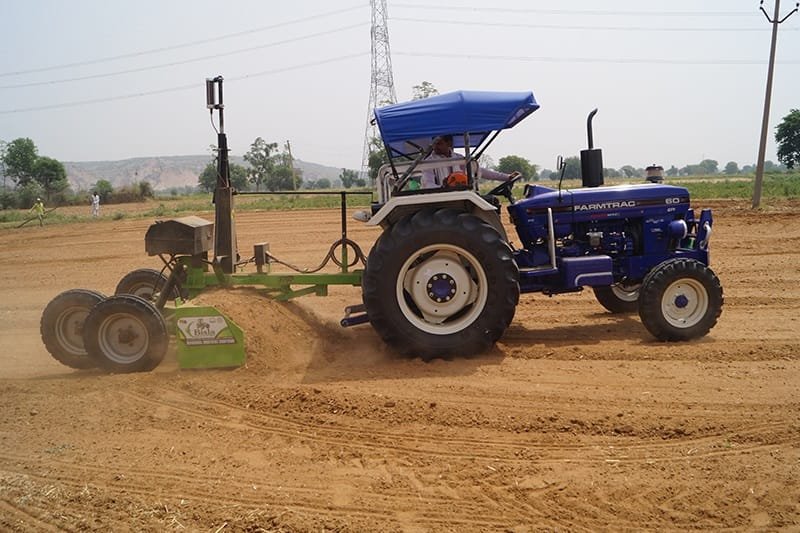Modern agriculture has undergone a revolutionary transformation, with technological advancements playing a pivotal role in increasing efficiency and productivity. Amidst the complex machinery and equipment used in the agricultural sector, high-tech lubricants have emerged as unsung heroes, silently contributing to the success of farming operations. This article explores the critical role of advanced agricultural lubricants in modern agriculture and how they facilitate the smooth functioning of agricultural machinery, ultimately contributing to the prosperity of the farming community.
Enhancing Machinery Efficiency
One of the key benefits of high-tech lubricants in modern agriculture lies in their ability to enhance the efficiency of agricultural machinery. Farm equipment, ranging from tractors to harvesters, comprises intricate mechanical components that require optimal lubrication to function seamlessly. Advanced lubricants reduce friction between moving parts and provide protection against wear and tear, ensuring that the machinery operates at peak performance levels.
Increasing Equipment Lifespan
Farmers heavily rely on expensive and sophisticated machinery to carry out various tasks on the field. These machines endure harsh conditions, including exposure to dust, debris, and extreme weather. High-tech lubricants act as a protective shield, preventing premature wear and corrosion of vital components. By reducing friction and minimising the impact of external elements, these lubricants significantly extend the lifespan of agricultural equipment, saving farmers from frequent replacements and repair costs.
Precision Agriculture and Digital Farming
Integrating digital technologies into agriculture, often called precision agriculture or digital farming, relies heavily on the seamless functioning of advanced machinery. High-tech lubricants play a crucial role in supporting precision agriculture by ensuring the reliability of sensors, actuators, and automated systems. These lubricants contribute to the smooth operation of precision farming equipment, such as drones and sensor-equipped tractors, facilitating the collection and utilisation of real-time data for informed decision-making.
Bio-Based Lubricants: A Step Towards Sustainability
In pursuing sustainable agricultural practices, the industry is witnessing a shift towards bio-based lubricants. Derived from renewable resources, these lubricants offer an eco-friendly alternative to traditional petroleum-based counterparts. Bio-based lubricants reduce the environmental impact and contribute to the overall sustainability of the farming ecosystem. Their biodegradability ensures minimal harm to soil and water, aligning with the industry’s commitment to responsible and environmentally conscious practices.
Extreme Conditions and Lubrication Challenges
Agricultural machinery operates in diverse and challenging conditions, from scorching heat to freezing cold and dusty fields to wet and muddy terrains. High-tech lubricants are formulated to meet these challenges, providing robust protection against extreme temperatures, water ingress, and abrasive contaminants. The ability of these lubricants to perform consistently under adverse conditions is vital for ensuring the reliability and longevity of agricultural equipment.
Machinery Optimisation for Increased Productivity
Beyond reducing friction and preventing wear, high-tech lubricants actively contribute to machinery optimisation. Lubrication is an integral aspect of preventive maintenance, ensuring that each component within the machinery functions at its best. This proactive approach minimises downtime, enhances overall productivity, and allows farmers to maximise their operational efficiency during critical planting and harvesting seasons.
Supply Chain Resilience and Agricultural Lubrication
Agricultural supply chains are complex, involving the seamless coordination of various stages, from production to distribution. High-tech lubricants contribute to supply chain resilience by ensuring the reliability of transportation and logistics machinery. Tractors, trucks, and other vehicles transporting crops from the farm to processing centres rely on proper lubrication for smooth and efficient operation. This, in turn, supports the timely delivery of agricultural products to market, promoting economic stability within the industry.
Summing up, as the world witnesses the continued evolution of agriculture into a high-tech industry, the role of lubricants becomes increasingly vital. These unsung heroes enable the seamless operation of complex machinery, contribute to precision agriculture, and support sustainability efforts within the sector. Farmers, industry stakeholders, and manufacturers must collaborate to overcome challenges, promote awareness, and drive innovation in agricultural lubrication. By recognising the significance of agricultural lubricants in modern agriculture, you can ensure a prosperous future for the farming community, where technology and tradition harmoniously coexist to meet the growing demands of a global population.



